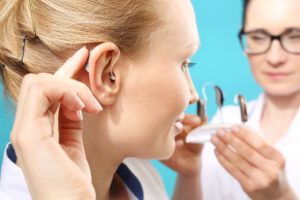 There’s no denying that age plays a role in how your body functions. The more miles you’ve put on your body, the less likely it is to respond at a high level. That’s why so many older Americans are at higher risk for disease and conditions like hearing loss.
There’s no denying that age plays a role in how your body functions. The more miles you’ve put on your body, the less likely it is to respond at a high level. That’s why so many older Americans are at higher risk for disease and conditions like hearing loss.
Think about it for a moment: how long have you been exposed to loud sounds? Noise pollution like traffic, leaf blowers, lawn mowers, air conditioners, and loud music have been wearing away at your hearing for decades. Estimates suggest that because of this, one in three Americans between the ages of 65 and 74 has hearing loss. That number jumps to an estimated one in two for folks 75 and older.
Advertisement
Although some degree of hearing loss may be inevitable, research has indicated there are things you can do to limit the damage to maintain this line of communication with the outside world.
You may have heard of techniques like using earmuffs or plugs to reduce the impact of loud noises. Keeping the volume low in your headphones and stereo will also help. But there is also some evidence that nutrition plays a role. The association between nutrition and heart health, inflammation, diabetes risk, and other conditions is often very clear. However, it’s rather easy to overlook how what you eat can influence ear health.
Research published in the Journal of Nutrition showed that women who ate Mediterranean-style diets and those resembling the DASH diet were significantly less likely to experience hearing loss than those whose diets least resembled them. Both of these eating styles focus on fruits, vegetables, nuts, whole grains, lean meats, fish and low-fat dairy while limiting sugar, salt, and animal fat. These diets were associated with a 30 percent lower risk of hearing loss.
It’s possible these nutrient-dense diets protect the cells in your ears to help maintain hearing and withstand the abuse caused by loud noises. If holding onto your hearing is a priority, nutritional support might be a cornerstone of preventing hearing loss with age.
